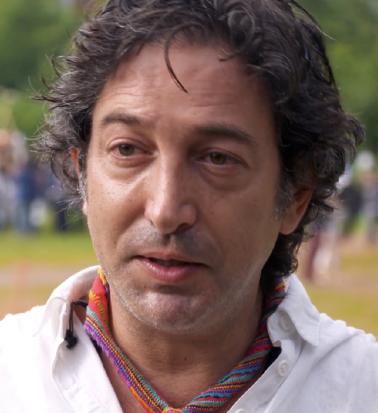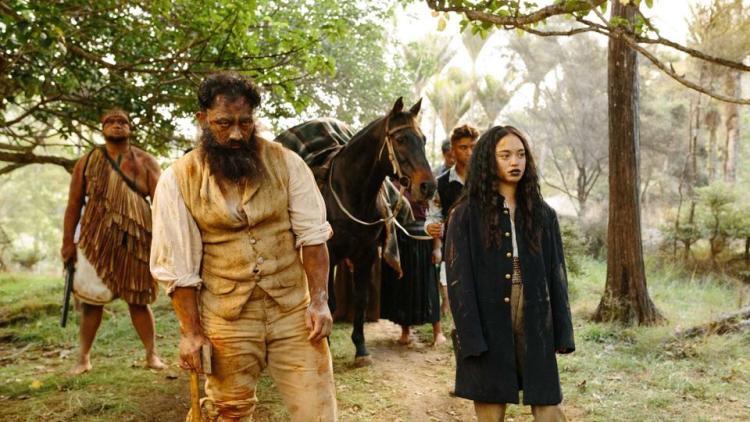
6 minute read
imagineNATIVE DIGITAL PROGRAMME
from ORIGINS 2021-22
WE ARE STILL HERE
23rd-30th October 2022 Online
Advertisement
In an exciting new partnership, ORIGINS worked with Toronto's imagineNATIVE Film + Media Arts Festival to bring their digital programme to our audiences. imagineNATIVE is the world’s largest presenter of Indigenous screen content, and has been a pioneer in the online presentation of Indigenous film. The 2022 programme included dramas, documentaries, experimental films and shorts programmes, many of which explored key ORIGINS themes: resistance to colonialism, environmental justice and cross-cultural exchanges.
Feature film highlights included: POWERFUL CHIEF by Henry Vallejo (Aymara), a Quechua and Spanish language film that follows Elisban, who arrives in a new city homeless and without money, as he survives in a city that sharpens his loneliness at every step; THE DROVER’S WIFE - THE LEGEND OF MOLLY JOHNSON by Leah Purcell (Goa-GungarriWakka Wakka Murri), a searing reimagining of Leah Purcell’s play and Henry Lawson’s classic short story, in which a mother is pushed to her limit to protect the ones she loves; and WE ARE STILL, HERE, a unique Indigenous film that interweaves eight powerful tales, from eight directors from Aotearoa, to tell a sweeping story of hope and survival.
Feature documentary highlights included: BRING HER HOME by Leya Hale (Dakota/Diné), a true crime doc that follows three Indigenous women – an artist, an activist, and a politician – as they fight to vindicate and honour their missing and murdered relatives who have fallen victims to a growing epidemic across Indian country; and KAATOHKITOPII: THE HORSE HE NEVER RODE by Trevor Solway (Blackfoot), a POV documentary narrated by the director about his grandfather Sonny Solway, a life-long rancher and ‘Indian Cowboy’.
1st October 2021-31st December 2022
A major participation and learning project, supported by the National Lottery Heritage Fund, BOTANY BAY explored the significance of plants and their migration histories in relation to Colonialism, Climate Change and Covid. Before the European invasions of Indigenous lands, evolution had followed divergent paths, with species of plants developing in very different ways from continent to continent. The colonial period replaced this with convergence, and with a commercial approach which is in part responsible for the ecological emergency we now face. By looking into the Indigenous heritage of the plants we grow and eat, we can begin to develop a more respectful relationship with the natural world.
BOTANY BAY involved five schools in London and Manchester, each of which created a new garden on Indigenous principles. These gardens contain installations especially commissioned from Indigenous artists, and were opened with ceremonies inspired by Indigenous practices.

Click here for the BOTANY BAY project booklet
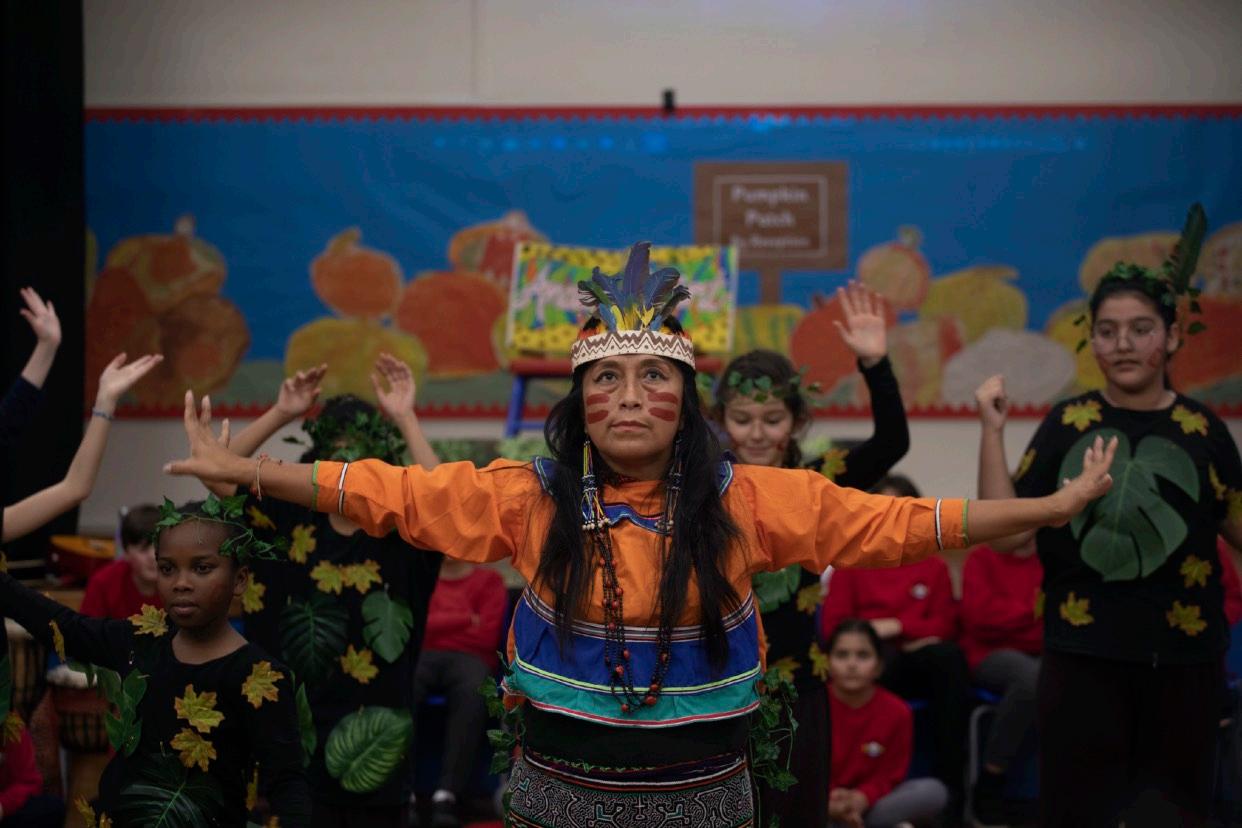
Winter
Beth Kidd visits Oxford to explore winter gardens, and Rosalyn LaPier points out the colonial nature of botany.
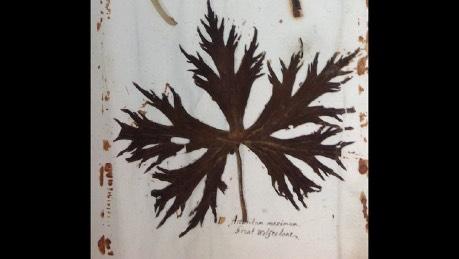
Introduction to the BOTANY BAY project
Tim Hudson outlines the historical background, and Melinda Schwakhofer (Mvskoke) looks into Yaupon Holly.
Summer
Genner Llanes Ortiz (Maya) looks into Indigenous relationships with maize, and Nisha Dassyne responds to the unprecedented summer of 2022.
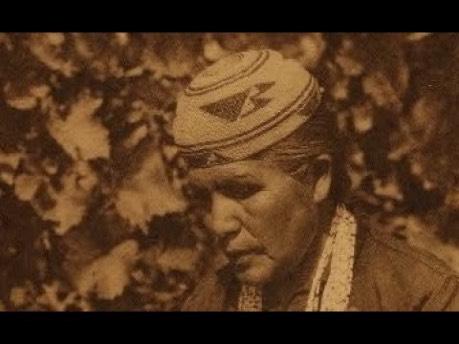
Spring
Nathan Woodworth (Karuk) visits the American Museum in Bath to explore how his culture relates to Spring.
Autumn
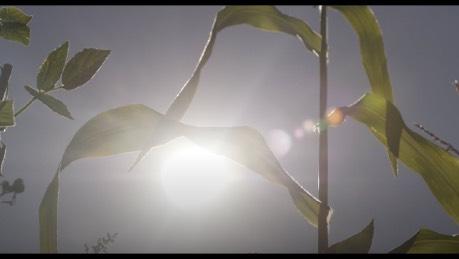
As the project ends, the schools celebrate its success in their gardens, facilitated by Gordon McLellan.
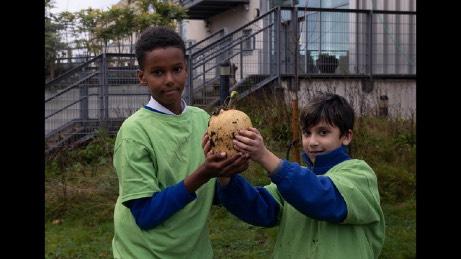
With thanks to National Lottery players!
From October 2022 Start at Brixton tube station
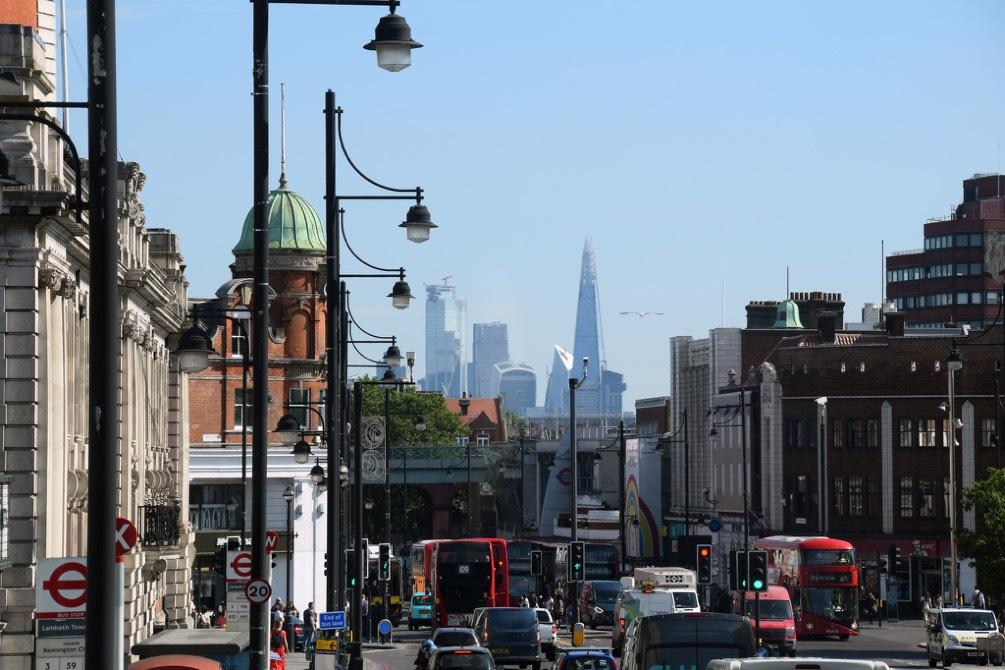
Download Aswarm XR for the SONGSTREETS app
During October 2022, Indigenous Australian musician Jessie Lloyd undertook a residency in Brixton, working with the community to discover songs and stories from the 75 years that have passed since the Windrush brought the first post-war migrants to London from the Caribbean. Applying the methodology she evolved to work with Indigenous Elders in her MISSION SONGS project, and collaborating with Brixton-born artist Tony Cealy, Jessie explored the commonalities of experience between Indigenous Australians and Black Britons, using music to commemorate local heritage, within global histories of racism and emerging processes of reconciliation. Jessie’s grandfather Albie Geia was a leader in the 1957 Palm Island Strike, which like the events in Brixton in 1981, were labelled ‘riots’, leading to Albie’s imprisonment.
ORIGINS commissioned Brixton-based sound artist, Thor McIntyre-Burnie, and his public arts company Aswarm, to respond to Jessie's residency; creating a site-specific, immersive experience that weaves the songs through the streets of Brixton and uncovers their extraordinary stories. The result is this immersive, interactive audio-walk.
Click here for a podcast about the project
Guitar in hand, androgynous Aboriginal Orpheus, she emerges from an Underworld. Brixton shrieks and chatters round her still, unsmiling head. Down under Australia’s red heart birthed her Blue of the Torres Strait bore her forebears over reef and wave. Red and blue the sign sings “Underground”.
Beneath these streets the secret, sacred rivers run. Effra, Neckinger, Peck.
You know your Songlines, Jessie LloydMusic and memory carried your ancestors to sacred sites and welcome waterholes.
What echoes will you hear here in our Brixton Songstreets?
Festivals are not the culmination of a project: they are the beginning of a process. I have always thought that festivals plant many different seeds, each growing a tree, ultimately creating forests of communion through art and tradition.
As a director and producer of many festivals, I know that we can make a contribution to social change, cultural improvement and better living. We establish long-term relationships with the communities we interact with, and are responsible for much more than simply the duration of the festival. Through festivals, cultures have been saved, cities dignified, forests defended and recovered, all while different cultures have embraced, whole regions have been fortified and art and traditions have been emancipated. Festivals have forged temporary spaces of peace and social justice with an holistic approach, providing a common ground for all. We act to create an entire scenario so that people can come and live in an harmonious bubble for a given period of time.
Then came Covid-19, and it changed our entire DNA. How could we create and run festivals without the public? We had to invent new and innovative ways to accomplish our mission, to think more deeply about what we wanted to say and how we could say it.
ORIGINS came up with a magnificent idea: expand the time and space of the festival. Instead of having multiple activities in one space at a certain time, special activities would be held throughout the year.
I must confess that when Michael Walling called me and told me his idea, I thought it was insane: that he would be working like a madman without rest, that audiences could get distracted, that financing would be more difficult. However, once he had finished explaining, I realised that it was a brilliant way of keeping the message of ORIGINS while actually broadening its audience.
It is no coincidence that this prodigious elucidation came from the ORIGINS Festival, which specialises in Indigenous arts. Time runs lighter in Indigenous cultures. They think of the preservation of Mother Earth and the safeguarding of their heritage, accepting natural cycles and having the patience necessary to accomplish such a great mission. ORIGINS understood this message and devised a magnificent programme with a wide range of artistic, traditional and spiritual experiences held across diverse areas of the UK and online.
The Indigenous message is to love and respect Mother Earth, to understand that we are a part of the cosmos and not its owners, to acknowledge community and family systems, to get closer to the deities and to realise that we are all connected. This Indigenous philosophy is the crucial piece of the puzzle that is missing in global reasoning and ORIGINS is the window for this ideology in the United Kingdom.
Profound Indigenous messages from all over the world have been presented throughout the past two years to a multitude of attentive ears and people of consciousness, reflecting the most important issues for our survival as a species. These messages came in the most innovative ways. A sacred Totem travelled through England and Scotland to COP-26, while performances, exhibitions, films, dance, music, theatre, happenings, lectures, publications and all kinds of arts were presented. All shared the most important vision of the 21st Century: to love and preserve Mother Earth, to view humanity as a whole, to seek social justice for Indigenous people, to realise that we are all connected and to take action for a better planet.
Thank you ORIGINS for making this world better.
Salomón Bazbaz Lapidus
Founder of Mexican educational and cultural institutions such as the Centre for Indigenous Arts, the NEMI Foundation and the Central Association for Cultural Intelligence, Salomón Bazbaz Lapidus focuses his efforts on the protection of traditional Indigenous cultures through the creation of festivals of international scope, including the Cumbre Tajín, the SurReal Festival, the Augustin Lara International Festival, the Route of Fire and Tajin Lives. Salomón seeks the preservation and dissemination of Indigenous identity, with a particular focus on the Totonac and Mayan cultures, basing his work on promoting social, cultural and touristic development. He coordinated the bid for the Ritual Ceremony of the Voladores to be listed as Intangible Cultural Heritage of Humanity by UNESCO (2009). Salomón attended ORIGINS 2015 with the Voladores, and worked with the 2021-22 Festival on the commissioning of TOTEM LATAMAT.
